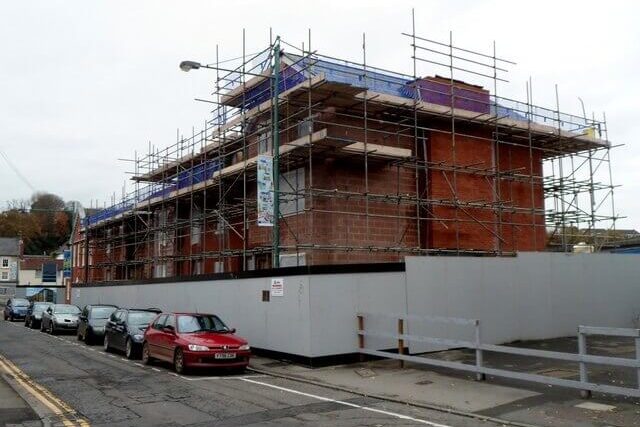
Proposals to weaken environmental regulations for small housebuilders could allow developers in England to build across an area equivalent in size to the Yorkshire Dales over the next decade without being required to replace the nature they destroy, new analysis has revealed.
Labour is seeking to remove the obligation for small housebuilders – those developing plots under one hectare (2.5 acres) – to replace lost biodiversity, as currently required under existing rules known as biodiversity net gain (BNG).
Ministers are consulting on proposals to scrap these rules for small-scale developments in a bid to boost housebuilding. However, analysis by environmental economists at the consultancy Eftec suggests that 97% of planning approvals – 76,800 out of 79,300 annually – would be exempt from the obligation to offset biodiversity loss under Labour’s proposal.
This could result in over 215,000 hectares – an area comparable to the Yorkshire Dales – being developed over the next ten years without any legal requirement to compensate for the environmental damage.
The biodiversity net gain policy was introduced to address the UK’s alarming loss of nature. The UK is one of the most nature-depleted countries in the world, and the government has pledged to protect 30% of land and sea for nature by 2030.
Under the BNG scheme, developers must ensure a 10% net increase in biodiversity. The rules came into force for major developments in February 2024, and for smaller sites in April. But according to the report, plans to remove the requirement for small-scale developers – who make up the majority of planning activity in England – would render the policy effectively meaningless.
“Biodiversity net gain is a hugely important principle: industries that harm nature should contribute to its recovery,” said Richard Benwell, of Wildlife and Countryside Link, which commissioned the research with the Lifescape Project. “The proposal to drastically widen the number of exempt small sites from the system would be a return to the bad old days of damaging development, and torpedo confidence in private investment in nature recovery.”
BNG was intended to apply to most planning applications. However, research found that 86% (69,500 out of 80,400) of planning applications approved between March 2024 and February 2025 claimed exemptions, which the researchers suggest may point to widespread abuse of the system by developers.
BNG is not required for sites smaller than 25 square metres, or those not impacting protected habitats. However, developers can “self-declare” to claim these exemptions.
Economists observed a rise in claims for these “de minimis” exemptions following the introduction of the rules last year.
“The scale of misuse across different sizes of planning applications suggests the de minimis exemption may be being intentionally misinterpreted,” the report said.
Joan Edwards, Director of Policy and Public Affairs at The Wildlife Trusts, said that while the government wants to attract private investment to help meet its legally binding nature recovery targets by 2030, altering the current system risks undermining the biodiversity market altogether.
“Scrapping biodiversity net gain for small sites would be a spectacular own goal,” she said. “Nothing undermines private-sector confidence more than a government that chops and changes the rules on a whim.”
The economists recommend that Labour refine its proposals to improve efficiency. They suggest limiting exemptions only to sites of up to 0.1 hectares, in line with the government’s new proposed definition of “very small sites”. This change would also close the loophole that currently allows some large developments to evade BNG requirements by claiming a de minimis exemption.
Thousands of individuals and organisations have submitted responses to the government’s consultation, which is due to close on 24 July.
Robert Oates, Chief Executive and Founder of the ecological consultancy Arbtech, warned that the government’s proposal “threatens both of its aims: supporting nature recovery and speeding up housebuilding”.
“Small site biodiversity net gain has only been in place for 13 months, yet developers and businesses have spent years preparing for it. U-turns like this create damaging instability. Developers need certainty, not another policy rewrite.”
A government spokesperson said: “This government is fully committed to biodiversity net gain and this consultation explores easier, quicker and cheaper routes to deliver gains for both developers and nature. We are also consulting on how biodiversity net gain should be applied to nationally significant infrastructure projects to provide a clear framework that ensures major new developments deliver for nature and contribute to our legally binding targets.”
——————————————————————————
At Natural World Fund, we are passionate about restoring habitats in the UK to halt the decline in our wildlife.

